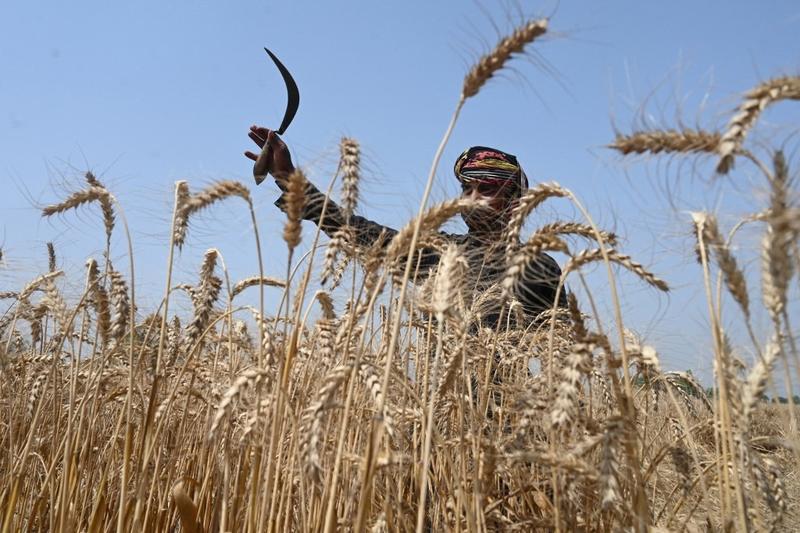 A farmer harvests wheat crop in a field on the outskirts of Lahore on April 14, 2022. (ARIF ALI / AFP)
A farmer harvests wheat crop in a field on the outskirts of Lahore on April 14, 2022. (ARIF ALI / AFP)
WASHINGTON - The Russia-Ukraine conflict has dealt "a major shock" to commodity markets, altering global patterns of trade, production and consumption, the World Bank said in a report released Tuesday.
The increase in energy prices over the past two years has been the largest since the year 1973, according to the WB's latest Commodity Markets Outlook report.
The increase in energy prices over the past two years has been the largest since the year 1973, according to the World Bank's latest Commodity Markets Outlook report
Price increases for food commodities, of which Russia and Ukraine are large producers, and fertilizers, which rely on natural gas as a production input, have been the largest since 2008, the report noted.
The report estimated that energy prices are expected to rise more than 50 percent in 2022 before easing in 2023 and 2024.
ALSO READ: WB chief warns food insecurity crisis could last into next year
The price of Brent crude oil is expected to average $100 a barrel in 2022, its highest level since 2013 and an increase of more than 40 percent compared to 2021. Prices are expected to moderate to 92 dollars in 2023, still well above the five-year average of $60 a barrel.
Non-energy prices, including agriculture and metals, are projected to increase almost 20 percent in 2022 and will also moderate in the following years.
Wheat prices are forecast to increase more than 40 percent, reaching an all-time high in nominal terms this year. Metal prices are projected to increase by 16 percent in 2022 before easing in 2023 but will remain at elevated levels.
Commodity prices are expected to remain well above the most recent five-year average, according to the report.
READ MORE: WB economist: Ukraine crisis poses huge risks for East Asia, Pacific
In the event of a prolonged conflict or additional sanctions on Russia, prices could be even higher and more volatile than currently projected, it added.


